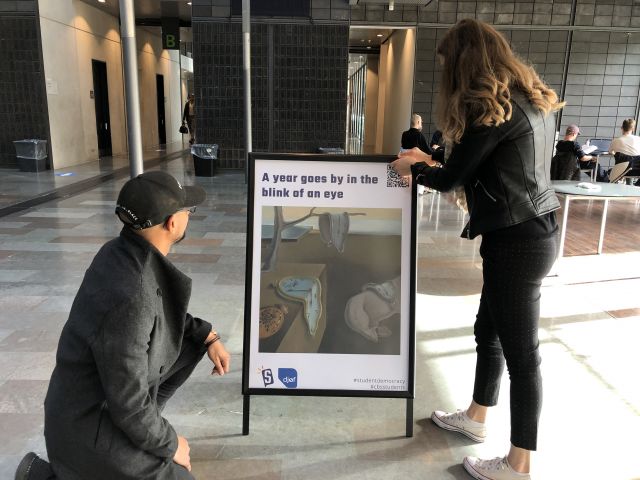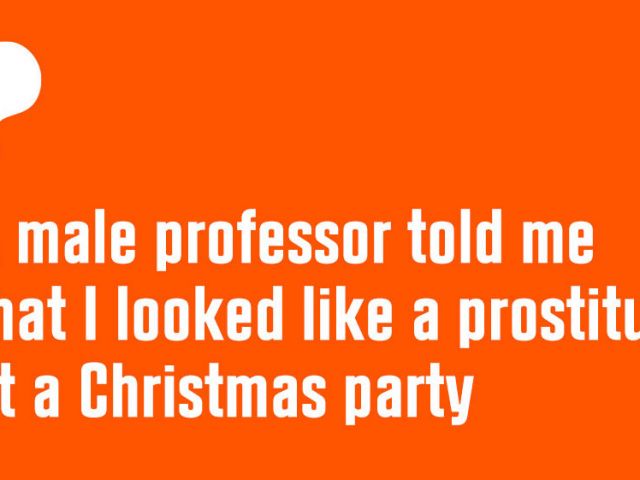What does truthfulness mean on Instagram?

(Private photo: Emidio Asquino)
A few days ago, I took the hard decision to improve my null dating experience in Denmark and finally downloaded Tinder. The first step, before being introduced to the awkward dynamics of online dating, is to pick the most attractive pictures to upload on your profile.
I immediately looked for mine on Instagram. Trying to understand what people might find interesting about me on social media, I analyzed my Instagram profile more objectively. I reached a pretty sad conclusion: my Instagram profile is boring!
How could I create an interesting Tinder profile, on which first impressions mean everything, when my Instagram profile basically screamed “look over there!”?
Most of my pictures are stolen shots; yet, it all looked staged: my smile looked fake, my captions looked fake, my body pose looked fake and, most importantly, every photo looked exactly the same.
In a moment of Aristotelian self-reflection, I asked myself one of the big questions that we all struggle with and we should never ask ourselves: what does “truthfulness” mean on Instagram?
Human beings, as social animals, have always felt the need to attract people. I will not dig any deeper into anthropology—my high-school philosophy teacher probably still thinks that I lack the knowledge for such an analysis.
Nevertheless, it is pretty obvious that, way before the rise of social networks, we have always filtered our nature to show people what we wanted them to see and attract them. What Instagram and other services did was to radicalize this social dynamic: in the world of social media, being desired is a synonym for being accepted.
We now have a direct platform on which we can show people all the assets at our disposal that can increase our social desirability and completely disregard those that reduce it. In order to look more fascinating to our followers, we only share moments that show us in a positive state of mind, as happiness is the tool to measure how charming someone can be.
When we show sadness, it is only done a posteriori—after the discomforting event has happened—so we can be admired for overcoming a difficult time. Due to this filtering process of our persona, the reality of social media does not correspond to the truth.
Instead, the world seen through the lenses of Instagram becomes a staging: we know it through fiction and in the form of fiction. We become the authors of our own play, in which we are both producers and consumers of digital content—a.k.a. prosumers.
The picture of a perfect muscled body reminds me of all the afternoons spent eating and watching Netflix on the sofa instead of working out
The anxiogenic result of this mechanism is that, every time we open our Instagram homepage and look at others’ posts, we are constantly reminded of the countless possible lives we could have had if we had made different decisions: the picture of a perfect muscled body reminds me of all the afternoons spent eating and watching Netflix on the sofa instead of working out; the picture of a person tanning at the beach reminds me of the travels I could have afforded if I had not dropped out of school; the stories of people drinking out remind me of how my nights would have been if I had chosen different friends; the pictures of the happy couple remind me of how lucky in love other people are.
Suddenly—unlike ours—the lives of the people we follow look so coherent and fulfilling, and the physical distance that originates from digital socialization makes this reality even more distorted. As a response, we tend to post more and more to keep on showing off, reproducing a never-ending circle of fascinating illusions.
However, after my post-modern nihilist analysis, there might be a soft light at the end of the tunnel: close friends’ stories. In the stories I post for my close friends I am more relaxed and none of the events I show is worth sharing, according to the popularity norms of Instagram.
I will make sure to upload on Tinder at least one picture where people can notice how truthfully big my nose is
Unconsciously, I do lower my masquerade and go against the desirability pattern. The close friends’ list represents the most inner circle of relationships—the word “close” itself lures one into a safe social bubble.
You might want to be desired by your acquaintances, but not your close friends; they are already attracted by you, otherwise they would not be close! Thus, with them you feel no need to show how much you are drinking on a weekend, how breathtaking the city you are visiting is and how lovely your partner is.
You just want to be you and share whatever is going through your mind without the feeling of being less attractive because of it.
At the end of the day, maybe it is not the right thing to ask yourself what is truthful on social media that allows you to grow dog ears and to look like a Bratz doll with the use of filters.
While I add this question to my personal list of unresolved big doubts, I will make sure to upload on Tinder at least one picture where people can notice how truthfully big my nose is.



































































































































Comments